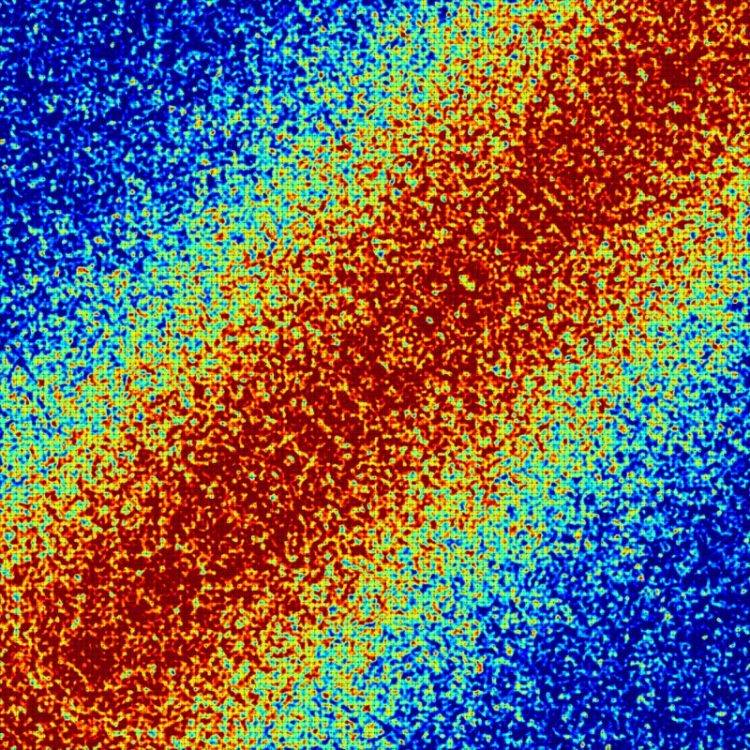Reversed evolution: German-French team of researchers discovers anti-aging in metallic glasses

Two-time correlation function, depicting spontaneous structural dynamics of an ultrastable metallic glass. Photo: University of Göttingen
Unlike conventional metals, metallic glasses have a disordered atomic structure. This disorder is central to their behavior and enhances their properties with respect to conventional metals. A metallic glass is harder and simultaneously more elastic than a conventional metal.
This characteristic makes metallic glasses especially interesting for highly demanding applications such as surgical implants. Unfortunately, their intrinsic disorder makes the atomic structure unstable. It changes spontaneously and causes their physical properties to change – the metallic glass ages.
“The source of its advantage is also the weak point of a metallic glass and forms a huge drawback in terms of usability,” explains Martin Lüttich, PhD student at Göttingen University’s I.
Physical Institute and co-author of the study. “This is a crucial problem for applications which rely on the constancy and permanence of the used material.” The studied ultrastable metallic glass is produced on a new path of glass formation and benefits from a drastically enhanced mobility of the atoms during preparation. This leads to enhanced properties compared to conventionally produced metallic glasses.
“Since on the microscopic scale both conventional and ultrastable metallic glasses behave rather similarly, our discovery of anti-aging in ultrastable metallic glasses came as a surprise,” says Lüttich. The unexpected finding is an important piece of knowledge in understanding the underlying mechanisms of structural dynamics in metallic glasses and in tailoring them for application.
Original publication: Martin Lüttich et al. Anti-aging in ultrastable metallic glasses. Physical Review Letters 2018. Doi: 10.1103/PhysRevLett.120.135504.
Contact:
Martin Lüttich
University of Göttingen
Faculty of Physics – I. Physical Institute
Phone: +33 4 76 88 4536
Email: mluetti1@gwdg.de
Media Contact
All latest news from the category: Physics and Astronomy
This area deals with the fundamental laws and building blocks of nature and how they interact, the properties and the behavior of matter, and research into space and time and their structures.
innovations-report provides in-depth reports and articles on subjects such as astrophysics, laser technologies, nuclear, quantum, particle and solid-state physics, nanotechnologies, planetary research and findings (Mars, Venus) and developments related to the Hubble Telescope.
Newest articles

Superradiant atoms could push the boundaries of how precisely time can be measured
Superradiant atoms can help us measure time more precisely than ever. In a new study, researchers from the University of Copenhagen present a new method for measuring the time interval,…

Ion thermoelectric conversion devices for near room temperature
The electrode sheet of the thermoelectric device consists of ionic hydrogel, which is sandwiched between the electrodes to form, and the Prussian blue on the electrode undergoes a redox reaction…

Zap Energy achieves 37-million-degree temperatures in a compact device
New publication reports record electron temperatures for a small-scale, sheared-flow-stabilized Z-pinch fusion device. In the nine decades since humans first produced fusion reactions, only a few fusion technologies have demonstrated…





















